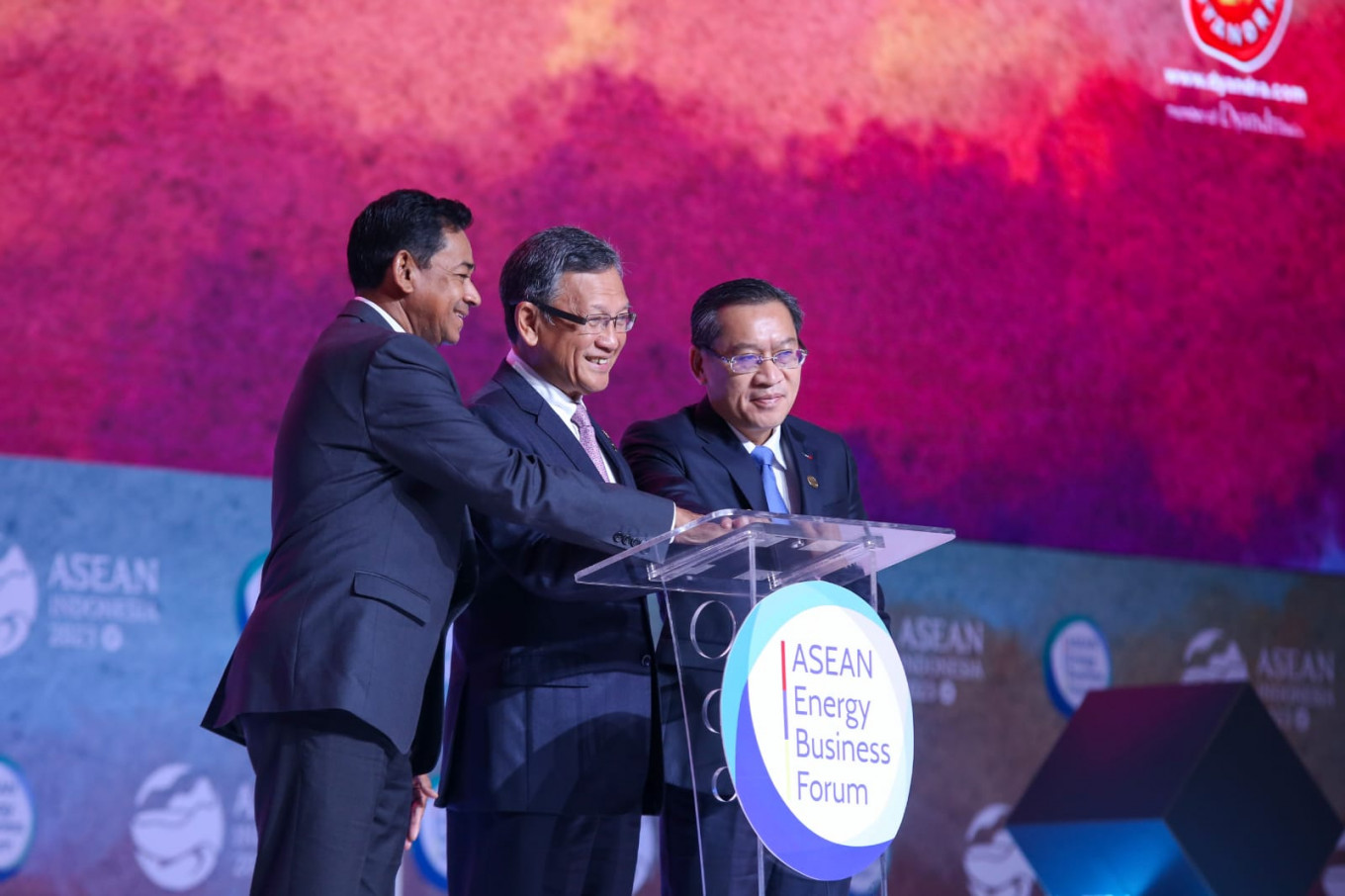Popular Reads
Top Results
Can't find what you're looking for?
View all search resultsPopular Reads
Top Results
Can't find what you're looking for?
View all search resultsRI to introduce carbon capture rule for industries by year end
The government is set to launch a new regulation on carbon capture and storage (CCS) by year-end in an effort to expedite investment on the technology and bring down emissions from hard-to-abate industries.
Change text size
Gift Premium Articles
to Anyone
T
he government is set to launch a new regulation on carbon capture and storage (CCS) by year-end in an effort to expedite investment in the technology and bring down emissions from hard-to-abate industries.
Mirza Mahendra, the Energy and Mineral Resources Ministry's director for oil and gas engineering and environment, said on Thursday that the ministry was devising a regulatory framework for industrial CCS applications, which could be expected to be ready in the coming months.
“The minister has set a target, this year we must finalize the law,” he told reporters on the sidelines of the ASEAN Energy Business Forum in Bali.
“What we urgently need is for the world to know that Indonesia has a rule established for [industrial] CCS [application]. After all, its deployment worldwide is still under review,” he added.
The technology largely will be aimed at helping remove the emissions from hard-to-abate industries, such as manufacturing, power generation, refinery, petrochemicals, steel and cement, according to the Indonesia Carbon Capture and Storage Center (ICCSC).
Indonesia is exploring the possibility of becoming the region’s CCS hub. He added this could be an opportunity for the archipelago given that there were many discussions about cross-border carbon dioxide (CO2) transportation from other countries to Indonesia.
Read also: RI needs new rules to compete for carbon capture investment:Experts
A CCS hub involves shared infrastructure that multiple CCS projects in the same region feed into, allowing the structure to decarbonize an entire industrial region.
“Why us? Indonesia has a lot of depleted reservoirs and saline aquifers to inject CO2 into,” he said.
Indonesia already has Energy Ministerial Regulation No. 2/2023 on carbon capture, utilization and storage (CCUS) in the petroleum areas.
However, the country needs to enact similar regulations to manage carbon capture implementation for other industries, Paul Everingham, CEO of the Asia Natural Gas and Energy Association (ANGEA) told The Jakarta Post during an interview on Aug. 2.
ICCSC executive director Belladonna Troxylon Maulianda said on Thursday that CCS deployment in Indonesia faced challenges from several aspects, including regulatory monitoring and management, commercial schemes and fiscal incentives.
“We have to collaborate [...] to boost CCS deployment in Indonesia,” she said during the conference, saying that pushing CCS application in Indonesia was more critical than ever now that the country was aiming to become a CCS hub in Southeast Asia.
Member countries in the region urgently need to capture their CO2, presenting a real opportunity for anyone who wants to tap into CCS, she said.
Potential CO2 emissions from coal-fired power plants and gas-fired power plants in the region, for instance, are estimated to reach 617 metric tons per annum (mtpa).
“ASEAN needs to create a formal carbon transportation agreement between member states and other Asian countries as well as create a regional carbon market framework in order to maximize that potential,” she said.
Read also: Experts remain doubtful about Indonesia’s planned carbon-capture regulation
Experts previously told the Post that Indonesia needed to take bolder action to bring in carbon capture investment as it may face tough competition from other ASEAN member countries that are looking to pursue similar goals.
Neighboring countries such as Malaysia, Thailand, Vietnam and the Philippines all have high potential for the geological storage of CO2 and are working to develop their own regulations to boost the deployment of the technology, according to research from Akin Gump Strauss Hauer & Feld.










